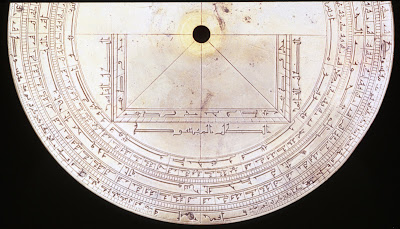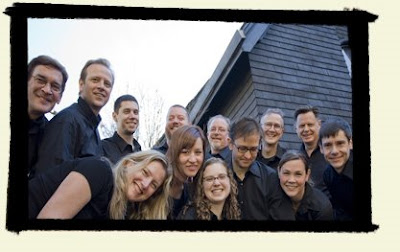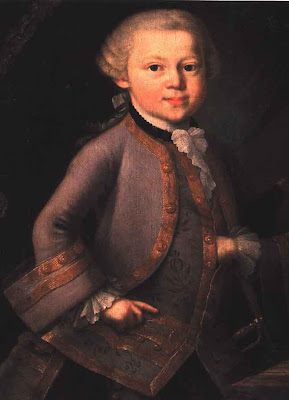
Image:schirmer.com/.../ composer/large/bloch-e.jpg
A year ago last night I sang in the chorus for a special Ernest Bloch concert at the San Francisco Conservatory of Music. I did it as a favor to a Bohemian Club friend, David Conte, a composer, professor of composition and conductor of the chorus at SFCM. Ernest Bloch was the first director of SFCM and last year 2009 was the half-century anniversary of Bloch's death in 1959.
The first half of the concert was a brilliant three-part violin/piano piece --not titled a sonata, but Baaal Shem (Three Pictures of Hassidic Life). The German Axel Strauss, an extraordinary violinist and a faculty member, was soloist, accompanied very expressively by guest artist Solon Gordon. This piece was composed in 1923, the same year he became an American citizen after immigrating from Switzerland. There definitely were hauntingly Jewish qualities to the piece. This was all the more thought provoking when played by a German.
I said above that I sang in the chorus as a favor to a friend. But the favor really was to me. Ernest Bloch's Avodath (Sacred Service), is an extremely powerful and moving concert piece originally composed to be performed in the Reformed Jewish liturgy. That it was copyrighted in 1934 (the year after Hitler assumed power in Germany) premiered in Europe that year and first heard in San Francisco in 1938 (the year of Kristallnacht) at Reform Temple Emanu-el, made it all the more poignant when we sang it two nights before the 71st anniversary of Kristallnacht (subject of a separate post tomorrow). I remember going to a special service at Temple Emanu-el commemorating the 50th anniversary of Kristallnacht. I can hardly believe that that was twenty-one years ago! I was working at Neiman-Marcus at the time and the next day I sold some jewelry to Cantor Roslyn Barak. She was shopping with her mother, and I told her how moved I was by her singing the night before. (Check out my very first blog post on September 4th, 2008.)
Back to the Sacred Service. Bloch's orchestration was distinctive, yet reminiscent at times of Mahler, early Schoenberg, Impressionism, even Wagner in places, and then Miklos Rozsa, composer of the film Ben-Hur. Of course, it was really Miklos Rozsa, who had been influenced by Ernest Bloch. The orchestra and chorus were conducted very capably by Andrew Mogrelia, former principal conductor of the San Francisco Ballet. The impressive baritone soloist Cantor was the Thai bass-baritone Kittanant Chinsamran. It was a genuine privilege for me to be a part of the chorus. Besides it was great fun to sing with conservatory students in their teens, twenties and early thirties.
Some text courtesy of SFCM concert program notes










